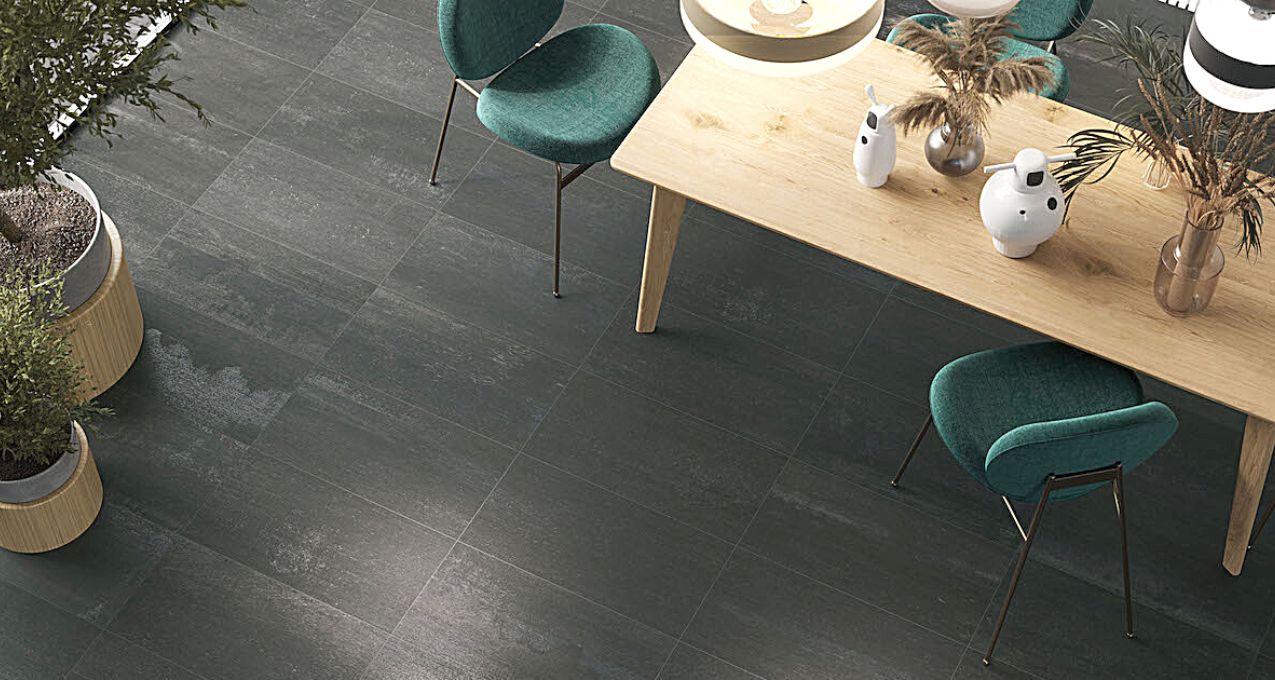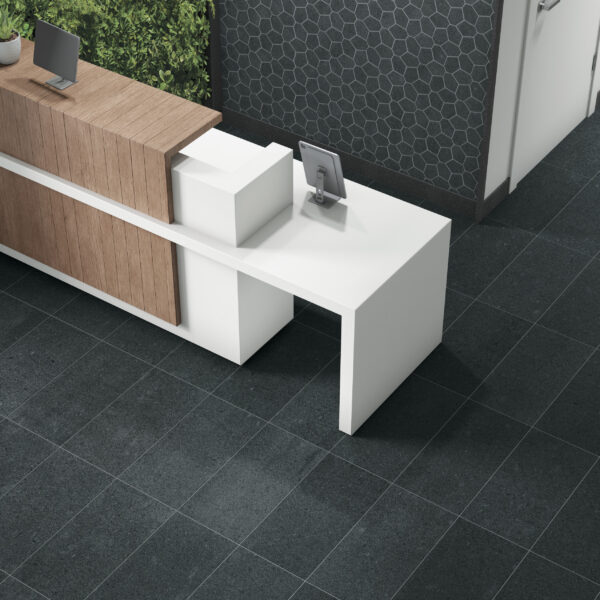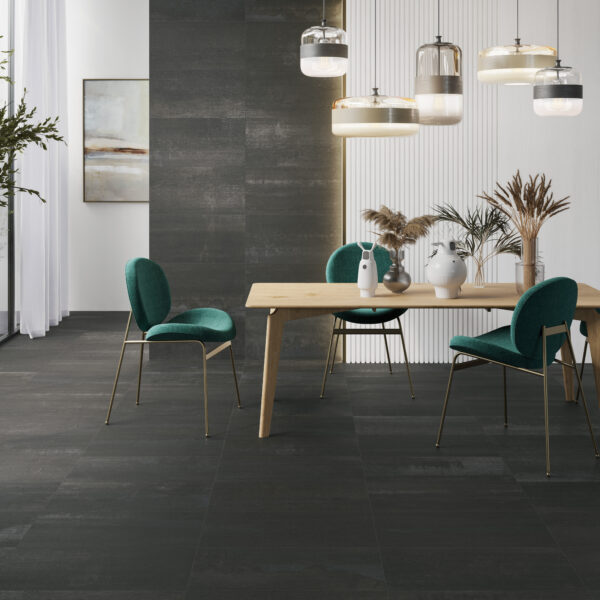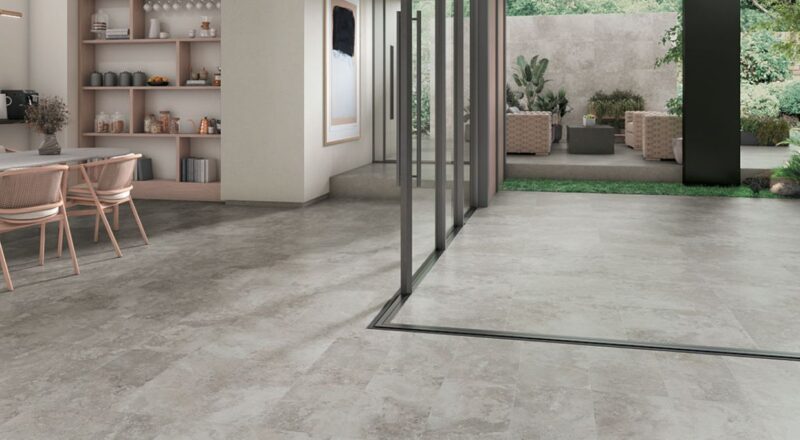AIA Materials Pledge
To address climate and human health and how designers can specify products that foster wellbeing on our planet, the American Institute of Architects (AIA) developed an Architecture & Design Materials Pledge to inspire members to shift the way in which they evaluate the products and finishes that they specify. From improving indoor air quality to reducing construction waste, the materials architects and designers specify for their design projects matter. Only through a comprehensive approach of considering all characteristics and impacts of building materials can designers help improve the health of the planet and the people that live on it.
Pledge participants commit to five overarching statements that will lead to more intentional product specifications over time. The five statements support human health, social health and equity, ecosystem health, climate health, and a circular economy. Read the full Architecture & Design Materials Pledge here.
Crossville & Sustainability
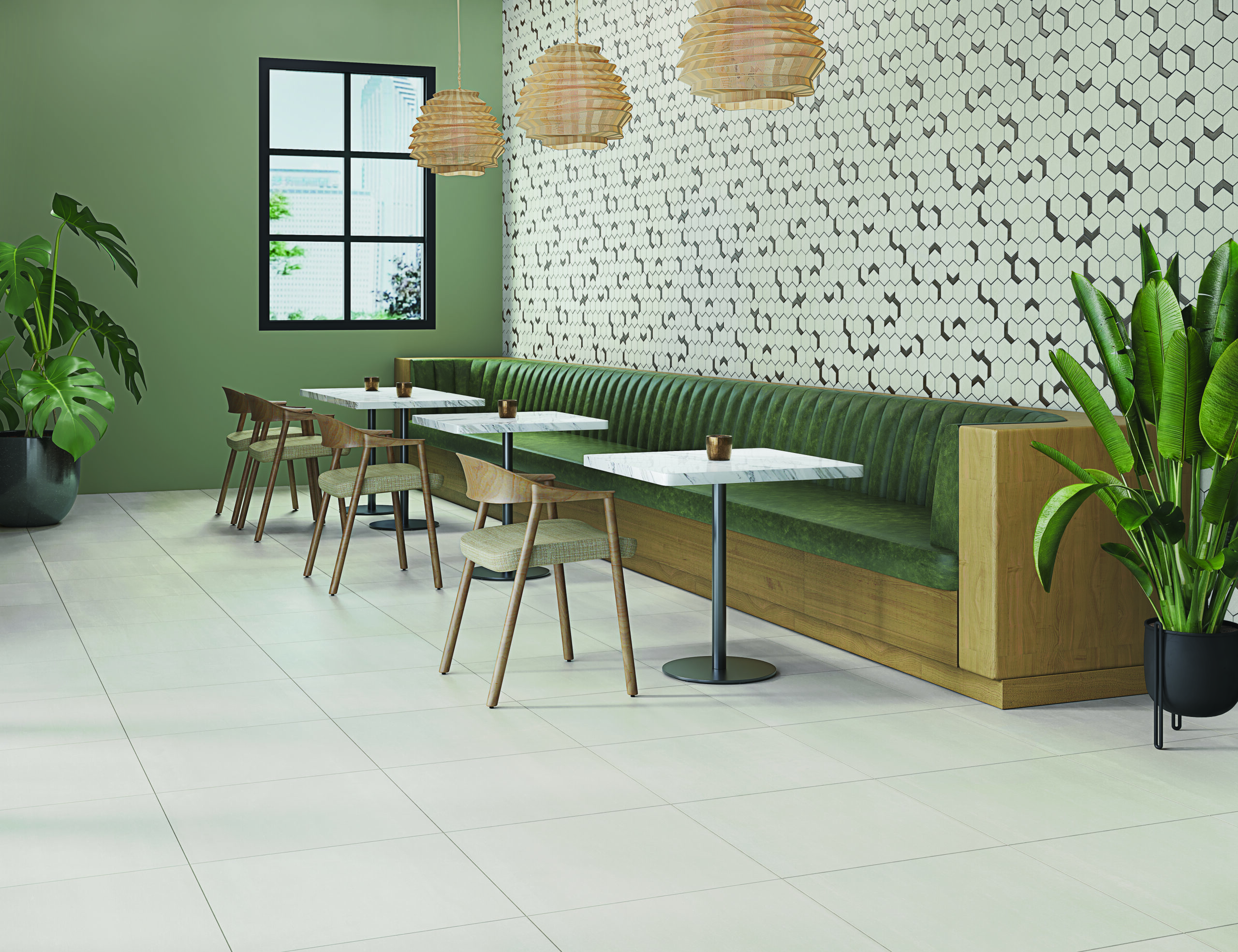
At Crossville, sustainability is, and always has been, at the core of our business, starting with sourcing and continuing until the final product stage. Our ongoing efforts in sustainability support the belief that the built environment should foster well-being in our lives at home, at work, and beyond.
Climate Health & Carbon Reduction
While Crossville’s sustainability initiatives correspond with the AIA pledge on all levels, our commitment to climate health is particularly apparent with the launch of our first carbon neutral porcelain tile products and our aggressive goals for a more sustainable future. The materials pledge specifically states, “support climate health by preferring products that reduce carbon emissions and ultimately sequester more carbon than emitted.”
 Our first carbon neutral porcelain tile collections, Native Metal and Civilization.
Our first carbon neutral porcelain tile collections, Native Metal and Civilization.
To that end, we are actively decarbonizing our products and facilities by:
- Maximizing efficiencies to reduce natural gas consumption
- Optimizing our formulations and formats to lower energy impacts
- Partnering with landlords to implement LED action-controlled lighting
- Actively leveraging full-truckload shipments to reduce fuel waste
- Pursuing new equipment with lower energy requirements
In 2014, Crossville completed its first energy usage assessment, which led us to create our Environmental Product Declarations (EPDs). At our 5-year update in 2019, Crossville realized a 10% reduction in energy usage, demonstrating that a path of carbon reduction in our facilities and operations was possible. This year, we announced our aggressive carbon reduction goals.
- Short-term goal: Achieve an additional 10% reduction in our tile’s global warming potential by 2024.
- Achieve a 30% carbon reduction from the 2014 baseline by 2030.
These goals reflect the changes we believe we can make to our processes to affect our tile’s global warming potential (GWP) and total carbon emissions. We are exploring all the ways internally that we can drive energy reduction strategies with changes to products, process improvements, and investigating all quickly evolving technologies that could help Crossville improve energy efficiency.
Other Sustainability Initiatives
While carbon reduction is top of mind for almost everyone, Crossville’s sustainability initiatives also include waste management (we are a net consumer of waste, meaning we use more waste than we actively produce), material ingredient transparency, and environmental transparency.
Waste Management
Making less waste, and finding innovative ways to use byproducts and second-grade materials, are at the heart of Crossville’s sustainability efforts. A few examples include:
- Filtering and recirculating wastewater through our plants to reduce water consumption
- Recycling all cardboard in manufacturing facilities
- Recycling unfired and fired scrap tile back into first-grade products
Transparency
You don’t have to just take our word for it — we offer HPDs, Declare Labels and EPDs for all the tile products we manufacture and porcelain countertops and panels.
HPD & Declare Labels
The Health Product Declaration (HPD) is a report that gives consistent reporting on product contents and health information for products used in a built environment. The Declare Label ensures there are no red list ingredients in our products (ingredients considered hazardous by the International Living Future Institute).
Life Cycle Assessment & EPD
Life Cycle Assessment (LCA) is the study of the impact of a product on the environment from sourcing through manufacture, distribution, use, removal/disposal, and renewal (through recycling or other means). EPDs (Environmental Product Declarations) are individual product summaries, similar to nutrition labels on foods, that present a snapshot of key information gained from LCAs to allow designers and architects to evaluate the sustainability of a particular product over its entire life cycle.
When AIA Materials Pledge participants take a holistic approach to materials specification in their goals to improve the health of theplanet and its inhabitants, they can depend on Crossville to support their efforts, as all of our efforts support the four flags of sustainability that serve as our guiding compass.

